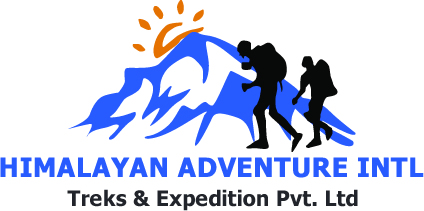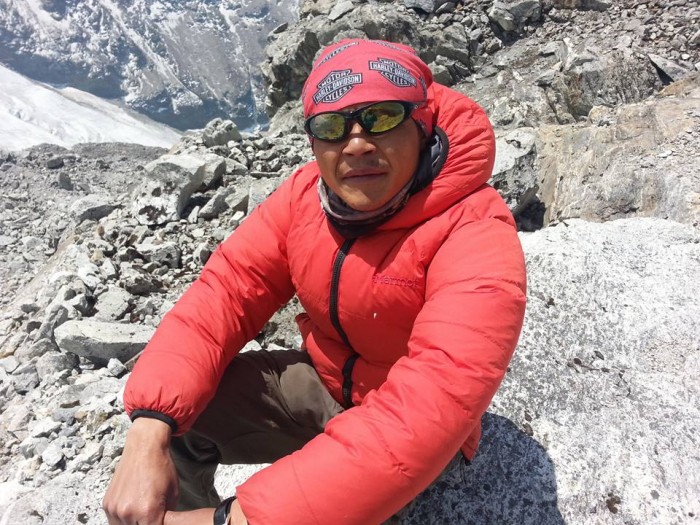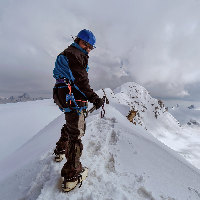The Langtang Valley Trek is one of Nepal’s most scenic and rewarding trekking experiences, often described as the “Valley of Glaciers.” Nestled just north of Kathmandu, this trek offers a perfect blend of Himalayan landscapes, rich Tamang culture, and breathtaking mountain views. Unlike the more crowded Everest and Annapurna regions, Langtang provides a quieter, more intimate trekking experience while still offering spectacular scenery.
At Himalayan Adventure International Treks, we specialize in organizing safe, memorable, and authentic trekking experiences in Nepal. Our expert local guides ensure that your Langtang Valley Trek not only takes you to the best viewpoints but also immerses you in the unique lifestyle of the people who call this valley home.
This article is a complete guide to the Langtang Valley Trek Nepal—covering itinerary, cost, permits, difficulty, best time to trek, cultural insights, and everything you need to plan your adventure.
Why Choose Langtang Valley Trek?
-
Close to Kathmandu – Just a day’s drive from the capital.
-
Rich Tamang culture – Influenced by Tibetan heritage.
-
Incredible views – Langtang Lirung (7,227m), Dorje Lakpa (6,966m), and Ganesh Himal.
-
Diverse landscapes – Lush forests, yak pastures, alpine meadows, and glaciers.
-
Less crowded – A great alternative to the busier Everest Base Camp and Annapurna treks.
-
Affordable – One of the best budget-friendly trekking destinations in Nepal.
Trek Highlights
-
Trek through the beautiful Langtang National Park, home to red pandas, Himalayan tahr, and monkeys.
-
Visit Kyanjin Gompa (3,870m), a traditional monastery with panoramic Himalayan views.
-
Climb Kyanjin Ri (4,773m) or Tserko Ri (5,000m) for sunrise over the Langtang Himalayas.
-
Experience authentic Tamang hospitality in mountain villages like Lama Hotel, Langtang, and Kyanjin.
-
Witness the resilience of the valley, which was heavily impacted by the 2015 earthquake and has since beautifully recovered.
Best Time for Langtang Valley Trek
Choosing the right season is crucial for the best trekking experience.
Spring (March – May)
Autumn (September – November)
Winter (December – February)
Summer/Monsoon (June – August)
Langtang Valley Trek Itinerary (11 Days)
Here is the classic 11-day itinerary for Langtang Valley Trek with Himalayan Adventure International Treks:
Day 01: Arrival in Kathmandu (1,400m)
Day 02: Drive from Kathmandu to Syabrubesi (1,550m) – 7-8 hours
-
Scenic drive through Trishuli River valley and green hills.
-
Overnight in Syabrubesi, gateway to Langtang.
Day 03: Trek from Syabrubesi to Lama Hotel (2,380m) – 6-7 hours
Day 04: Lama Hotel to Langtang Village (3,430m) – 6-7 hours
Day 05: Langtang Village to Kyanjin Gompa (3,870m) – 4-5 hours
Day 06: Acclimatization Day – Hike to Kyanjin Ri (4,773m) or Tserko Ri (5,000m)
Day 07: Kyanjin Gompa to Lama Hotel – 6-7 hours
Day 08: Lama Hotel to Syabrubesi – 5-6 hours
Day 09: Drive back to Kathmandu – 7-8 hours
Day 10: Kathmandu Sightseeing
Day 11: Departure from Nepal
Trek Difficulty
The Langtang Valley Trek is considered a moderate trek, making it suitable for beginners with reasonable fitness.
-
Max altitude: 5,000m (Tserko Ri)
-
Trekking hours per day: 5-7
-
Fitness level required: Average
-
Risk of AMS (Acute Mountain Sickness): Moderate above 3,000m; acclimatization day helps.
Cost of Langtang Valley Trek
The Langtang Valley Trek cost depends on group size, services, and duration. At Himalayan Adventure International Treks, we offer affordable and customizable packages.
Typical Cost Breakdown:
Trek package price: USD 750 – 950 (11 days, all-inclusive)
Permits:
Accommodation:
Meals: USD 5 – 10 per meal (Dal Bhat, noodles, momos, soups)
Guide & Porter:
👉 With Himalayan Adventure International Treks, you get a complete package including permits, accommodation, meals, guide, porter, and transport.
Permits Required
Langtang National Park Entry Permit – USD 30 per person.
TIMS (Trekkers Information Management System) Card – USD 20 per person.
Both permits can be arranged by Himalayan Adventure International Treks on your behalf.
Accommodation and Meals
-
Accommodation: Tea houses run by local families. Rooms are basic but clean.
-
Meals: Traditional Nepali meals (Dal Bhat), Tibetan bread, momos, fried rice, noodles, and soups.
-
Hot drinks: Tea, coffee, and yak butter tea widely available.
Culture and People
The Tamang and Sherpa communities of Langtang Valley share strong ties with Tibetan culture. Their language, clothing, and festivals resemble Tibetan traditions. You’ll find Buddhist monasteries, prayer flags, and mani walls throughout the trek.
Highlights include:
-
Kyanjin Gompa Monastery – spiritual center of the valley.
-
Yak cheese factory – taste fresh Himalayan yak cheese.
-
Local homestays – experience traditional Tamang hospitality.
Travel Tips for Langtang Valley Trek
-
Pack layers – temperatures vary from hot days to freezing nights.
-
Carry Nepali rupees – no ATMs after Syabrubesi.
-
Buy snacks in Kathmandu – prices rise with altitude.
-
Respect local culture – dress modestly near villages and monasteries.
-
Travel insurance – must include high-altitude trekking and helicopter evacuation.
Alternatives and Extensions
-
Langtang & Gosaikunda Trek – Combine Langtang with the sacred lakes of Gosaikunda.
-
Tamang Heritage Trail – Add cultural immersion with Tamang villages.
-
Langtang Helambu Trek – A longer circuit with varied landscapes.
Why Trek with Himalayan Adventure International Treks?
-
Local Expertise: Professional guides with decades of experience in Langtang region.
-
Safety First: Trained in altitude sickness management and emergency evacuation.
-
Authentic Experience: We support local tea houses and promote responsible trekking.
-
Customizable Packages: Flexible itineraries to suit your time and budget.
-
Affordable Pricing: Transparent cost breakdown without hidden charges.
The Langtang Valley Trek Nepal is a hidden gem that combines Himalayan scenery, cultural richness, and accessibility. Whether you’re a first-time trekker or a seasoned adventurer, this trek offers a perfect balance of challenge and comfort.
By trekking with Himalayan Adventure International Treks, you’ll enjoy expert guidance, safe travel, and meaningful cultural encounters. Join us on the Langtang Valley Trek and discover why it’s one of Nepal’s most cherished trekking routes.

 Plan Your Trip Now
Plan Your Trip Now 





